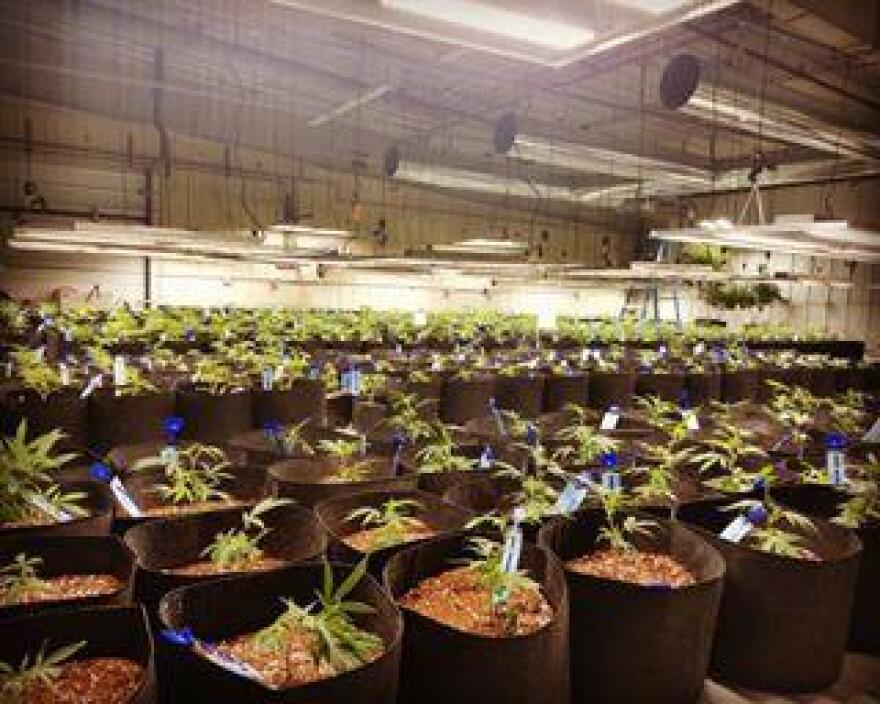The Fairbanks City Council is looking at limiting the number of marijuana businesses in town through an ordinance that’s modeled on how the city and state limit alcohol-related establishments. Mayor Jim Matherly introduced a draft ordinance Monday to adopt standards governing density of cannabis shops and other types of marijuana businesses.
“The City Council is going to address how many different facilities we want to allow in the city limits,” Matherly said Monday. “And that includes marijuana stores, cultivation facilities, testing facilities and product-manufacturing facilities.”
Matherly says he doesn’t yet have a firm number in mind as to how many marijuana-related businesses would be appropriate for a city with a net population of just over 26,300. But the mayor says he hopes he and the council will be able to come up with what he calls the right density of the businesses, based on population.
“I don’t want to have 50 of them to open in the city,” he said. “I don’t think the voters want that, either.”
Matherly said in an interview before the work session that he wants the council to develop a standard to determine the appropriate density, like the one the state uses to determine the number of alcohol-related business it allows in a community.
“For instance – one per several thousand people, much like we do now with alcohol, and alcohol stores, bars and licenses,” he said.
City Clerk Danyielle Snider told council members during the work session that, using the state Alcoholic Beverage Control Board’s guidelines, the city would be allowed one each of those categories of alcohol-related businesses per 3,000 people.
“That means we could have nine package stores, nine clubs, nine bars,” she said.
But, Snider added, Fairbanks obviously has many more bars and package stores than that.
“(Regarding) Our beverage dispensaries, which are generally our bars that have full alcohol service, we are way, way, way over – we have 41. We’re supposed to have only nine; we have 41,” she said. “And our package stores – we’re also supposed to have only nine, and we have 15.”
By way of comparison, the state Marijuana Control Board lists 31 active and operating cannabis-related businesses in Fairbanks. And during Monday’s City Council meeting, members approved a business-license application for one more cultivation facility, subject to the Tanana Herb Company obtaining a certificate of occupancy for its building in an industrial area around the Alaska Railroad Terminal.
“We’re still in unchartered territory” on how to regulate marijuana, he said “Alcohol has been around for a very long time.”
Matherly’s draft resolution also would address concerns that’ve been expressed by many area residents on the location that marijuana-related businesses would operate. The draft measure would add a provision that says the council may consider whether issuing a business license would “adversely affect the health, welfare or public safety of the neighborhood in which the marijuana establishment is proposed to be located, or otherwise would not be in the best interest of the public.”
Matherly says he proposed the new ordinance in an attempt to regulate the industry that’s been thriving in Fairbanks since Alaska voters passed a statewide ballot measure legalizing pot in 2014.
The mayor says new regulations are needed now, because he expects nine more marijuana business-license applications to come before the council soon.
“Time is of the essence, a little bit, because you can see the list here,” he said.
He says he hopes the council will complete its work in time to begin consideration of a final version of the ordinance by the end of the month.



